#caye casas
Explore tagged Tumblr posts
Text
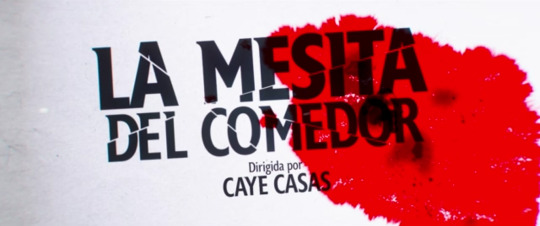







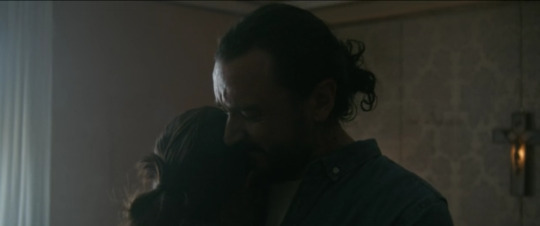


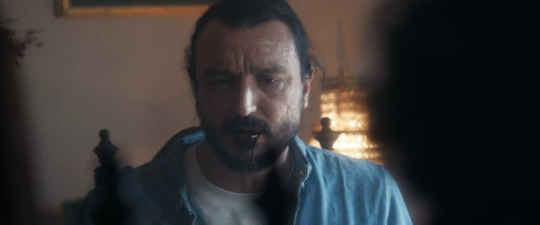


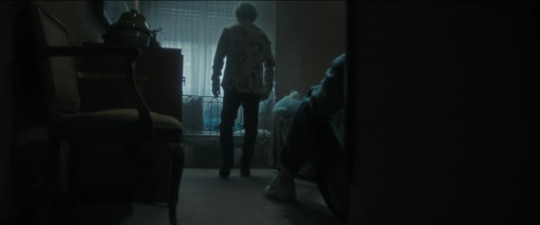
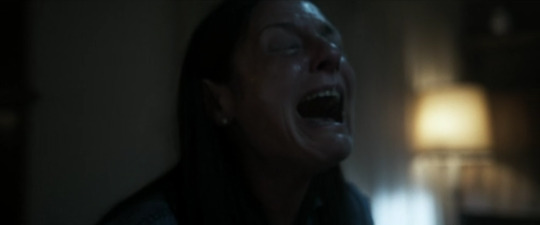
The Coffee Table (2022)
40 notes
·
View notes
Text


Double Bill Number Fourteen:
The Coffee Table (2022) + A Christmas Story (1983)
whatthehelliswrongwithhim writes: “hello dave. I just finished the coffee table (2022) and thought it would make a fun double feature with a christmas story (1983): they’re both movies where a guy buys a weirdly sexy piece of furniture that his wife hates. keep up the good work man”
Hi! Thank you for the great suggestion and the kind words! I actually really really want to see “The Coffee Table”, but haven’t been able to find it anywhere, hopefully it will be available here in Norway soon. I think I saw “A Christmas Story” when I was a kid, but maybe it’s due for a rewatch this Christmas season.
#submission#@whatthehelliswrongwithhim#the coffee table#la mesita del comedor#spanish films#caye casas#cris borobia#Josep Riera#David Pareja#estefanía de los santos#Claudia Riera#a christmas story#Bob Clark#Jean Shepherd#Peter Billingsley#Melinda Dillon#Darren McGavin
7 notes
·
View notes
Text
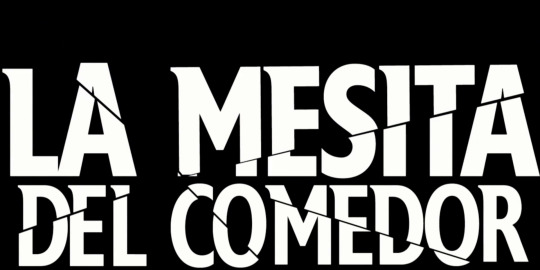
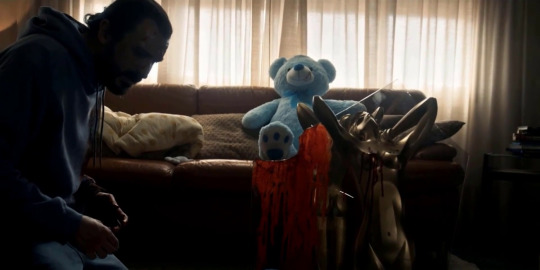

Cine español, y del bueno...¿cómo es que no me había enterado antes de esto???
La mesita del comedor, 2022, Caye Casas
11 notes
·
View notes
Text
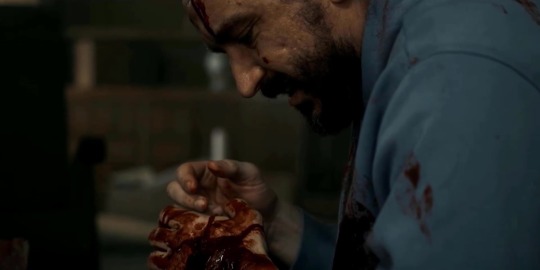
La mesita del comedor (2022) Caye Casas.
6 notes
·
View notes
Text
One Mann's Movies: Films of the Year 2024
Go onr a cinematic journey as One Mann's Movies reveals his top 20 films of 2024 along with the 10 worst ones.
A Happy New Year to all followers of One Mann’s Movies! A little later than planned (due to a weekend away) here is my “Films of the Year” post where I list my Top 20 films of 2024. I also provide my Top 10 run-down of my worst films of the year. This follows my publishing of the respective videos on and around New Year, which are also included below. My Top 20 Films of the Year I’ve seen over…
#2024#Adam Driver#Adria Arjona#Alex Garland#Alexander Payne#All of us Strangers#American Fiction#Andrew Scott#Angel Studios#Annabel Scholey#Anya Taylor-Joy#Aubrey Plaza#Blink Twice#Blitz#bob-the-movie-man#Cabrini#Cailee Spaeny#Caye Casas#Celeste O&039;Connor#Challengers#Channing Tatum#Chris Evans#Chris Hemsworth#Chuck Chuck Baby#Cinema#Civil War#Claire Foy#Conclave#Coralie Fargeat#Cord Jefferson
0 notes
Text
Unrelenting, Unforgettable Horror Film THE COFFEE TABLE Included In Numerous 2024 Best Of Lists!
Cinephobia Releasing is proud to release the acclaimed horror film THE COFFEE TABLE! The film is being included in many 2024 best of lists. It is by director Caye Casas and stars David Pareja and Estefanía de los Santos. Look for the film available now on most VOD and streaming platforms. From The Press Release “My guess is you have never, not once in your whole life, seen a movie as black as…
0 notes
Text

Watching
THE COFFEE TABLE [LA MESITA DEL COMEDOR] Caye Casas Spain, 2022
#watching#Spanish films#Caye Casas#David Pareja#Estefanía de los Santos#Josep Maria Riera#Claudia Riera#Eduardo Antuña#Gala Flores#Spanish language#2022
0 notes
Text

The Coffee Table (Caye Casas, 2022)
Il film inizia con una coppia (Maria e Jesus), che con il loro neonato Cayetan si trova in un negozio di mobili per acquistare un tavolino. Il venditore cerca di vendere loro un tavolino da caffè a suo dire speciale, ma abbastanza costoso. Maria non è convinta, al contrario del marito che sembra impuntarsi e che difatti concluderà l'affare. Tornati a casa, Maria decide di andare a fare la spesa visto che avrebbero avuto ospiti a cena, così lascia il piccolo Cayetan a casa col padre che è alle prese col montaggio del nuovo tavolino. Da quel momento le cose prenderanno una piega tragica.
Ho recuperato recentemente questo film spagnolo del regista Caye Casas, nome a me sconosciuto ma che sembra saperci fare, tanto da convincermi a recuperare altri suoi lavori. 'The Coffee Table' è un film che va visto senza star lì a cercare troppe informazioni su cosa si sta andando a guardare. Il film inizia con un tono abbastanza ironico e leggero per poi mollarti una pesantissima mazzata che personalmente mi ha lasciata inebetita. Un'ansia perenne mi ha accompagnata durante la visione arrivando ad un epilogo nerissimo e devastante. Un film che mi ha convinta abbastanza nonostante la sua semplicità e che a mio parere non ha nulla da invidiare agli horror mainstream zeppi di effetti ma senza sostanza. Straconsigliato e imperdibile per chi ama gli horror psicologici.
1 note
·
View note
Text
THE COFFEE TABLE - Review
AKA - La Mesita del Comedor DISTRIBUTOR: Cinephobia Releasing
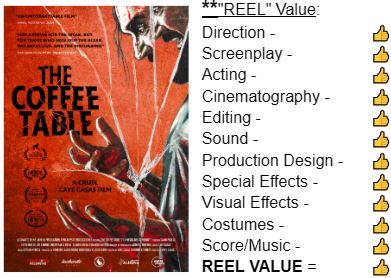
SYNOPSIS: In the midst of their loving relationship, Jesús and Maria welcomed their child into the world. As they settled into their new apartment, Maria assumed control over most decisions, including the decoration. During a visit to a furniture store, Jesús asserted his will by selecting a gaudy coffee table, resembling Liberace's misguided venture into Ikea. Maria argues with the salesman, particularly regarding the price and his claims of an "unbreakable" glass top, but Jesús gets his small victory and purchases the coffee table. After bringing the table home and trying to assemble it, Jesús is faced with a screw missing. While he waits for the salesman to deliver the missing piece, Maria heads to the market to purchase groceries for lunch with Jesús's brother and his girlfriend, leaving him alone with their baby. As they go about their day they are unaware that this extravagant, seemingly inconsequential coffee table would be the catalyst for everyone’s horrifying nightmare.
REVIEW: In THE COFFEE TABLE, Caye Casas skillfully merges Hitchcock's mastery of visual perception and David Fincher's climactic tension-building from "Seven," resulting in an immersive and unrelenting cinematic experience. Casas audaciously sustains a dire scenario throughout a grueling 90-minute runtime, crafting a relentless narrative that captivates and unsettles viewers.
The screenplay skillfully constructs the character's arcs through their interactions, adding depth and complexity. The sound design is effectively used to stimulate the viewer's imagination when tragic events occur off-screen. The limited perspectives revealed build suspense and tension as the drama unfolds. A dynamic is established between Jesús and Maria, allowing the viewer to experience the tension before her reintroduction to the apartment after the tragedy. Their intensified interactions, along with the introduction of Jesús's brother and girlfriend, hint at an unfortunate outcome. The viewer's melancholy, based on prior knowledge, mirrors Jesús' emotional state.
The film's climax surprised me, both in its intensity and its conclusion. Early in the story, we meet a 13-year-old character and her pet. As the narrative unfolded, I couldn't help but consider the potential implications of this relationship for the film's dramatic conclusion.
Earlier, I mentioned Hitchcock and Fincher while discussing Caye Casas. Casas is a masterful filmmaker who expertly blends elements from these virtuosos with his unique vision to create a distinctive style. His film excels in suspense and tension, skillfully crafted through framing and editing. Casas gradually builds the suspense, offering brief releases, only to heighten it further, leading the viewer to the brink of an explosive climax. However, instead of revealing the horrific outcome explicitly, he leaves the audience bewildered and provides a nuanced resolution through exposition, focusing on the emotional impact on the individuals involved. Much like great horror films, he plants the seeds of terror, leaving the power of imagination to work its magic. While not shunning gore entirely, he opts for implication rather than graphic depiction.
THE COFFEE TABLE features an exceptional cast. The actors deftly navigate a wide range of emotions, creating an intense and evocative journey. Their performances culminate in a sophisticated emotional crescendo, a harmonious convergence of diverse feelings that builds to a haunting climax. It's like the final chord of the Beatles' "A Day in the Life," leaving a lingering resonance. These are performances that linger in the memory, haunting and captivating in equal measure.
Caye Casas’ THE COFFEE TABLE is a harrowing and masterfully crafted story that takes viewers on an emotionally relentless journey. It's a cinematic experience that leaves an enduring emotional impact on the viewer. The narrative plunges a group of characters into a horrifying nightmare, creating a grueling and nerve-wracking experience..
The film is classified as a “horror comedy,” and while it does have some humorous moments in the opening scene, once the tragedy strikes, any attempts at dark comedy only heighten the overall terror of the story. Caye Casas, the remarkable filmmaker behind this movie, is definitely a name worth keeping an eye on for future projects.
CAST: David Pareja, Estefanía de los Santos, Josep Riera, Claudia Riera, Eduardo Antuña. CREW: Director/Screenplay/Editor - Caye Casas; Screenplay - Cristina Borobia; Producer - Norbert Llaràs; Cinematographer - Alberto Morago; Score - Bambikina; Production Designer - Cristina Borobia; Costume Designer - Maria Márquez. OFFICIAL: cinephobiareleasing.com/film/the-coffee-table/ FACEBOOK: www.facebook.com/cinephobiareleasing RELEASE DATE: Laemmle Glendale, LA Apr. 19th, followed by New York, Austin, Chicago, & on VOD & DVD May 14th, 2024 TWITTER: twitter.com/cinephobiar
**Until we can all head back into the theaters our “COVID Reel Value” will be similar to how you rate a film on digital platforms - 👍 (Like), 👌 (It’s just okay), or 👎 (Dislike)
Reviewed by Joseph B Mauceri
#film review#movie review#THE COFFEE TABLE#La mesita del comedor#cinephobia releasing#caye casas#Cristina Borobia#david pareja#Estefanía de los Santos#horror#dark comedy#terrifying#joseph b mauceri#joseph mauceri
1 note
·
View note
Text
The Coffee Table
There aren’t many things more innocuous and humdrum than the humble coffee table. Yet, somehow, Spanish director Caye Casas proves that even the most benign household object can be repurposed into a tool of horror. This is what Jesús and María — a couple with a strained marriage and a new-born son — quickly discover in The Coffee Table (or La Mesita del Comedor). The salesman (played by Eduardo…
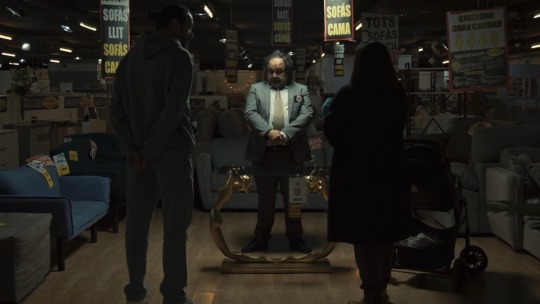
View On WordPress
#Black Comedy#Caye Casas#Comedy#David Pareja#Drama#Eduardo Antuña#Estefanía de los Santos#Horror#Tragicomedy
0 notes
Text
"The Coffee Table"
This unrelenting, bleak domestic drama with a sinister streak is one of the darkest films I have ever seen.
I just watched one of the darkest films I have ever seen, and that’s “The Coffee Table,” an unrelenting and bleak domestic drama that takes an incredibly sinister turn. This film pushes the envelope with an in-your-face 180 degree turn, and it’s one that’s absolutely not for the faint of heart. Jesus (David Pareja) is tired of his wife Maria (Estefanía de los Santos) always calling the shots.…
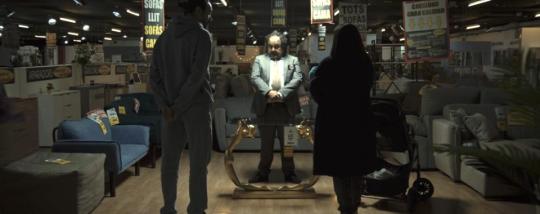
View On WordPress
#Caye Casas#Claudia Riera#Cristina Borobia#David Pareja#Estefanía de los Santos#Fantastic Fest#Josep Maria Riera
0 notes
Text
The Coffee Table - Grimmfest 2023 (Film Review)
Continue reading Untitled

View On WordPress
#Caye Casas#Fantastic Fest#Fantastic Fest 2023#film festival#film review#Grimmfest#Grimmfest 2023#horror review#The Coffee Table
0 notes
Photo
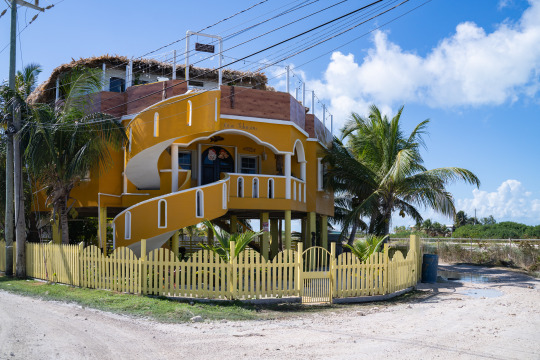
Casa Johnson, San Pedro Belize
0 notes
Text
[:hu]The Coffee Table ((La mesita del comedor)) (2022) (A dohányzóasztal)[:]
[:hu] Rendszeres olvasóink már tudják, hogy a spanyol horrorok rendszerint szerkesztőségünk kollektív szívének csücskei szoktak lenni. Nem hiába, hiszen a legritkább esetben okoznak csalódást, és rendszerint egyedi hangvételű, filmes szempontokból is kiváló darabokat kapunk a félsziget alkotóitól. Így van ez A dohányzóasztal, Caye Casas új filmjének esetében is. Continue reading [:hu]The Coffee…

View On WordPress
0 notes
Text
The Coffee Table (15): Farcical Horror That’s Blacker Than Black.
#onemannsmovies #filmreview of The Coffee Table. #thecoffeetable. A jet-black comedy horror that disturbs but impresses. 4/5.
A One Mann’s Movies review of “The Coffee Table” (2022). Original title: La mesita del comedor. In a world of bland Hollywood cookie-cutter horror films (“Baghead”, “Tarot”, “Imaginary”, yada, yada, yada…), “The Coffee Table” is refreshingly different. Gone are the jump scares. But it is far more horrific and tense than anything I’ve watched this year. Bob the Movie Man Rating: Plot…
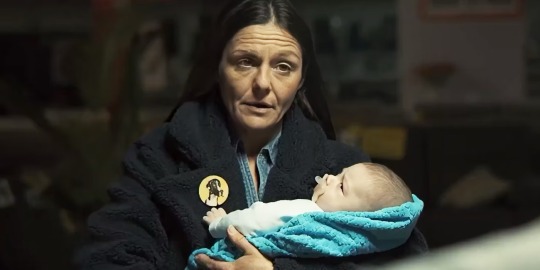
View On WordPress
#TheCoffeeTable#bob-the-movie-man#bobthemovieman#Caye Casas#Cinema#Claudia Riera#Cristina Borobia#Cristina Dilla#David Pareja#Eduardo Antuña#Estefanía de los Santos#Film#film review#Gala Flores#Josep Maria Riera#Movie#Movie Review#One Man&039;s Movies#One Mann&039;s Movies#onemannsmovies#onemansmovies#Review
0 notes
